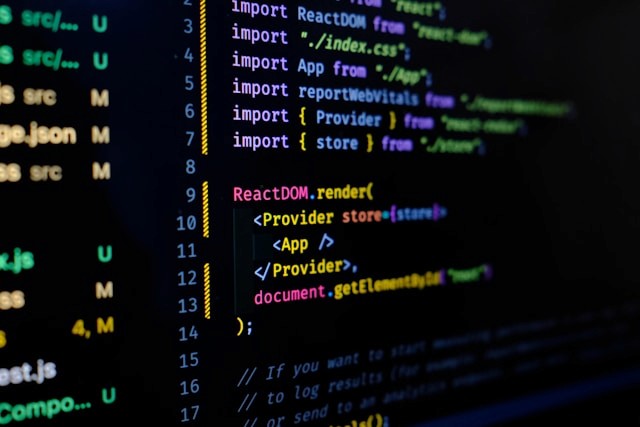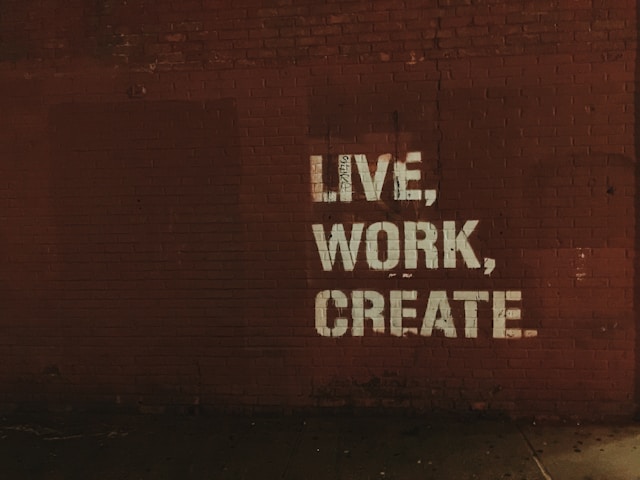Gdansk Poland
Gdansk Poland
Gdansk Poland
Learn React
Jan 18, 2024
The best way to learn React

The best way to learn React depends on your preferred learning style, existing knowledge, and resources available. Here's a structured approach that many find helpful:
Understand JavaScript Fundamentals: React is built with JavaScript, so having a solid understanding of JavaScript is crucial. Focus on concepts like functions, arrays, objects, classes, and ES6 features like arrow functions and destructuring.
Learn HTML & CSS: While not directly related to React, a good grasp of HTML and CSS is essential for building user interfaces.
Official React Documentation: Start by going through the official React documentation. It provides a comprehensive overview, from basic concepts to advanced topics. The tutorial in the documentation is particularly useful for beginners.
Online Courses: There are many online courses available for learning React, such as those on Udemy, Coursera, or free ones on platforms like freeCodeCamp. Look for courses that offer hands-on projects and provide a structured learning path.
Books: Books like "Learning React" by Alex Banks and Eve Porcello or "React Up & Running" by Stoyan Stefanov are excellent resources for in-depth understanding.
YouTube Tutorials: There are numerous YouTube channels offering tutorials on React. Channels like Traversy Media, The Net Ninja, and Academind have high-quality tutorials suitable for beginners to advanced learners.
Practice: Practice is key to mastering React. Start by building small projects and gradually increase the complexity. Utilize platforms like CodePen or CodeSandbox for quick experimentation.
Join a Community: Engage with the React community through forums like Reddit (r/reactjs), Stack Overflow, or Discord servers. Participating in discussions, asking questions, and helping others can accelerate your learning.
Work on Real Projects: Once you have a good grasp of the basics, start working on real-world projects. Building projects will help solidify your understanding and provide valuable experience.
Stay Updated: React and its ecosystem are constantly evolving. Stay updated with the latest trends, best practices, and new features by following blogs, podcasts, and attending conferences or meetups.
Remember, learning React is a journey, and it's okay to encounter challenges along the way. Stay persistent, keep practicing, and don't hesitate to seek help when needed.
More Nores

Copyright © 2024 kodik.io
Learn React
Jan 18, 2024
The best way to learn React

The best way to learn React depends on your preferred learning style, existing knowledge, and resources available. Here's a structured approach that many find helpful:
Understand JavaScript Fundamentals: React is built with JavaScript, so having a solid understanding of JavaScript is crucial. Focus on concepts like functions, arrays, objects, classes, and ES6 features like arrow functions and destructuring.
Learn HTML & CSS: While not directly related to React, a good grasp of HTML and CSS is essential for building user interfaces.
Official React Documentation: Start by going through the official React documentation. It provides a comprehensive overview, from basic concepts to advanced topics. The tutorial in the documentation is particularly useful for beginners.
Online Courses: There are many online courses available for learning React, such as those on Udemy, Coursera, or free ones on platforms like freeCodeCamp. Look for courses that offer hands-on projects and provide a structured learning path.
Books: Books like "Learning React" by Alex Banks and Eve Porcello or "React Up & Running" by Stoyan Stefanov are excellent resources for in-depth understanding.
YouTube Tutorials: There are numerous YouTube channels offering tutorials on React. Channels like Traversy Media, The Net Ninja, and Academind have high-quality tutorials suitable for beginners to advanced learners.
Practice: Practice is key to mastering React. Start by building small projects and gradually increase the complexity. Utilize platforms like CodePen or CodeSandbox for quick experimentation.
Join a Community: Engage with the React community through forums like Reddit (r/reactjs), Stack Overflow, or Discord servers. Participating in discussions, asking questions, and helping others can accelerate your learning.
Work on Real Projects: Once you have a good grasp of the basics, start working on real-world projects. Building projects will help solidify your understanding and provide valuable experience.
Stay Updated: React and its ecosystem are constantly evolving. Stay updated with the latest trends, best practices, and new features by following blogs, podcasts, and attending conferences or meetups.
Remember, learning React is a journey, and it's okay to encounter challenges along the way. Stay persistent, keep practicing, and don't hesitate to seek help when needed.
More Nores

Copyright © 2024 kodik.io
Learn React
Jan 18, 2024
The best way to learn React

The best way to learn React depends on your preferred learning style, existing knowledge, and resources available. Here's a structured approach that many find helpful:
Understand JavaScript Fundamentals: React is built with JavaScript, so having a solid understanding of JavaScript is crucial. Focus on concepts like functions, arrays, objects, classes, and ES6 features like arrow functions and destructuring.
Learn HTML & CSS: While not directly related to React, a good grasp of HTML and CSS is essential for building user interfaces.
Official React Documentation: Start by going through the official React documentation. It provides a comprehensive overview, from basic concepts to advanced topics. The tutorial in the documentation is particularly useful for beginners.
Online Courses: There are many online courses available for learning React, such as those on Udemy, Coursera, or free ones on platforms like freeCodeCamp. Look for courses that offer hands-on projects and provide a structured learning path.
Books: Books like "Learning React" by Alex Banks and Eve Porcello or "React Up & Running" by Stoyan Stefanov are excellent resources for in-depth understanding.
YouTube Tutorials: There are numerous YouTube channels offering tutorials on React. Channels like Traversy Media, The Net Ninja, and Academind have high-quality tutorials suitable for beginners to advanced learners.
Practice: Practice is key to mastering React. Start by building small projects and gradually increase the complexity. Utilize platforms like CodePen or CodeSandbox for quick experimentation.
Join a Community: Engage with the React community through forums like Reddit (r/reactjs), Stack Overflow, or Discord servers. Participating in discussions, asking questions, and helping others can accelerate your learning.
Work on Real Projects: Once you have a good grasp of the basics, start working on real-world projects. Building projects will help solidify your understanding and provide valuable experience.
Stay Updated: React and its ecosystem are constantly evolving. Stay updated with the latest trends, best practices, and new features by following blogs, podcasts, and attending conferences or meetups.
Remember, learning React is a journey, and it's okay to encounter challenges along the way. Stay persistent, keep practicing, and don't hesitate to seek help when needed.
More Nores

Copyright © 2024 kodik.io


